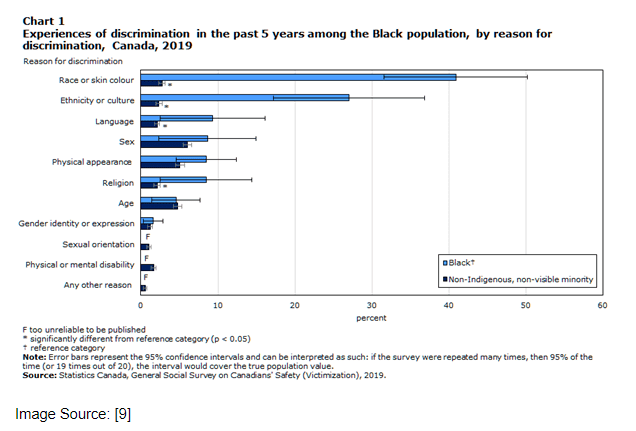Blog: June 27th is the 51st Anniversary of Canadian Multiculturalism Day

By Jayme Wong
Monday, June 27th, 2022 is Canadian Multiculturalism Day. Since 2002, this day marks and celebrates the contributions to Canadian society by individuals of various backgrounds and their diversity [1]. Placed between National Indigenous Peoples Day on June 21st and Canada Day on July 1st, Canadian Multiculturalism Day celebrates the diversity that makes up the nation’s vibrant cultural tapestry. However, is one day a year enough to celebrate and promote multiculturalism?
In the simplest sense, multiculturalism is the acknowledgment of multiple cultural identities. In Canada, this means “ensuring that all citizens keep their identities, take pride in their ancestry, and have a sense of belonging” [2]. Multiculturalism is considered an important foundation of Canadian society, having been enshrined by law in the Canadian Multiculturalism Act in 1985. The Act “recognize[s] and promote[s] the understanding that multiculturalism reflects the cultural and racial diversity of Canadian society and acknowledges the freedom of all members of Canadian society to preserve, enhance and share their cultural heritage” [3]. The policy also encourages, fosters, and promotes the advancement of multiculturalism, calling for equitable participation and treatment of all individuals in Canadian society, regardless of cultural, ethnic, or racial origin. How citizens go about finding their sense of belonging is not explicitly prescribed by doctrine and, while Canadian Multiculturalism Day provides an opportunity for Canadians to openly promote and celebrate their cultural heritages, there is no account for how Canadians should address these key features of their identities the other 364 days of the year.
Canada’s multiculturalism policy has always stood in stark contrast to the United States’ “melting pot”, which encourages the assimilation of newcomers to one common culture. In recent years, American scholars have denounced the melting pot theory in favour of the “salad bowl”, “where cultures of different shapes and sizes can coexist” [4]. One main difference between Canada’s multiculturalism and America’s salad bowl is that ours is an ideology that has been acknowledged by the government and protected by law. However, whether law is enough to prompt action from the citizenry to make multiculturalism a reality and promote national unity, is still up for debate.
Does having multiculturalism enshrined in policy actually make a difference to social attitudes? Both Canadian and American ideas have been the subject of deep scrutiny with proponents of the melting pot/salad bowl theory rejecting multiculturalism and vice versa. Critics of multiculturalism, such as D.C.-based writer, Kenny Xu, suggest that multiculturalism creates differences instead of minimizing them: “[M]ulticulturalists create [a] yawning inequality in our society: between those who believe in and benefit from America’s cultural melting pot and those who reject it and become strangers in their own land” [5]. While others, like Alberta’s former Minister of Culture, Multiculturalism and Status of Women, Leela Sharon Aheer, suggest that the differences are a strength: “Multiculturalism is a choir, where many different voices join together to create beautiful music. It is also the foundation to this province, and the key to building a vibrant and inclusive future” [6].
Regardless of the ongoing debate, both multiculturalism and the melting pot/salad bowl are still just ideas – ideas that stay in text unless they are manifested into reality by actions. While the Canadian Multiculturalism Act does call upon federal institutions to “generally, carry on their activities in a manner that is sensitive and responsive to the multicultural reality of Canada” [3], this includes the ongoing colonization and inhabitation of Indigenous lands and reluctant support for the accommodation of religious diversity [7].
Hate incidents in Canada reported by South Asian and Southeast Asian people increased by 318% and 121%, respectively, during 2021 [8]. In 2019, 46% of Black Canadians aged 15+ reported experienced at least one form of discrimination in the past five years [9]. Regardless of the federal government’s mandates, it is up to the citizenry to ensure that Canada’s multiculturalism actually lives up to its name.

This Canadian Multiculturalism Day, I invite you to join the celebrations that are happening around the province. Actively celebrating each other’s cultures and embracing our differences is what enables Canada’s national mosaic. But, remember that multiculturalism includes the good, the bad, and the ugly – the ridges and fractures that appear when multiple cultures come into contact and confront each other for the first time. While the Canadian Multiculturalism Act ensures that there is infrastructure in place to support culturally diverse endeavours, it is the individual actions made by Canadians that ensure multiculturalism’s effectiveness.
End of text reference list (chronological):
[1] Proclamation Declaring June 27 of each year as “Canadian Multiculturalism Day” (SI/2002-160). Retrieved from the Justice Laws website: https://laws-lois.justice.gc.ca/eng/regulations/SI-2002-160/page-1.html
[2] Multiculturalism. (2022, May 30). Government of Canada. Retrieved June 19, 2022, from https://www.canada.ca/en/services/culture/canadian-identity-society/multiculturalism.html
[3] Canadian Multiculturalism Act. (R.S.C., 1985, c. 24 (4th Supp.)). Retrieved from the Justice Laws website: https://laws-lois.justice.gc.ca/eng/acts/c-18.7/page-1.html
[4] Vidal, Jennifer. (2018, December 16). America the Salad Bowl – but some vegetables are more equal than others. Medium. https://medium.com/immigration-nation/america-the-salad-bowl-4883f9a77ad2
[5] Xu, Kenny. (2021, February 16.) What Multiculturalism Has Wrought. City Journal. https://www.city-journal.org/why-immigrants-favor-melting-pot-over-multiculturalism
[6] Canadian Multiculturalism Day: Minister Aheer. 2021, June 27. Red Deer News Now. https://rdnewsnow.com/2021/06/27/canadian-multiculturalism-day-minister-aheer/
[7] Jedwab, Jack. (2011). Multiculturalism. In The Canadian Encyclopedia. Retrieved from https://www.thecanadianencyclopedia.ca/en/article/multiculturalism
[8] Balintec, Jessica. (2022, April 3). 2 years into the pandemic, anti-Asian hate is still on the rise in Canada, report show. CBC. https://www.cbc.ca/news/canada/toronto/2-years-into-the-pandemic-anti-asian-hate-is-still-on-the-rise-in-canada-report-shows-1.6404034
[9] Cotter, Adam. (2022, February 16). Experiences of discrimination among Black and Indigenous populations in Canada, 2019. Statistics Canada. https://www150.statcan.gc.ca/n1/pub/85-002-x/2022001/article/00002-eng.htm
Jayme has a BA in English and Philosophy from the University of Lethbridge and an MA in English and Film Studies from the University of Alberta. She currently lives in Edmonton with her partner and their cat.

